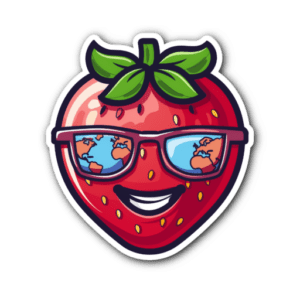Mastering a language alone involves using innovative techniques like language learning apps for phrases and grammar. Immersive strategies, like virtual reality and conversation partners, enhance skills. Flashcards and mnemonic devices boost memory. Interactive tools and group sessions keep me engaged. Language exchange meetups improve conversational skills. Keeping a language journal tracks progress and enriches the journey. Being creative in journaling helps me experiment with writing styles and cultural idioms. Cultural immersion through local activities deepens my understanding. Implementing a strategic blend of these techniques enhances proficiency and cultural connection. Exciting revelations await those seeking to enhance their language learning journey.
Language Learning Apps
When traveling solo, I find language learning apps indispensable for quickly picking up essential phrases and improving communication skills in foreign countries. These apps offer a range of features that cater to different learning styles, making them versatile tools for language acquisition. One key benefit is the pronunciation practice they provide. By listening to native speakers and practicing pronunciation exercises, I can refine my accent and sound more natural when conversing with locals. Additionally, many apps offer grammar exercises that help solidify the rules of the language, allowing me to construct sentences accurately.
The interactive nature of these apps keeps me engaged and motivated to continue learning, even when on the go. The convenience of having language lessons at my fingertips enables me to make the most of my travel time by incorporating learning into daily activities. Overall, language learning apps serve as efficient companions for solo travelers seeking to enhance their linguistic abilities quickly and effectively.
Immersive Language Learning
When it comes to language learning, practical immersion strategies and virtual reality language tools are essential components that can greatly enhance one's linguistic skills.
Practical immersion strategies involve actively engaging with the language in real-life situations, such as conversing with locals or participating in cultural activities.
On the other hand, virtual reality language tools offer innovative ways to simulate immersive language environments, allowing learners to practice their language skills in a controlled and interactive setting.
Practical Immersion Strategies
Implementing practical immersion strategies is important for solo travelers looking to enhance their language learning experience effectively and efficiently. Conversation partners play a vital role in this process, providing real-life interactions that help improve speaking and listening skills.
Seeking out language cafes, where locals gather to converse in their native tongue, can also offer valuable practice opportunities. These cafes create a relaxed environment for language learners to engage in casual conversations while experiencing the culture firsthand.
Virtual Reality Language Tools
Utilizing virtual reality language tools can offer solo travelers an immersive and interactive method to enhance their language learning experience.
Virtual reality language immersion provides a unique opportunity to practice language skills in realistic scenarios, making the learning process more engaging and effective.
Through language learning simulations, users can find themselves in virtual environments where they need to communicate in the target language to navigate and interact with characters.
These tools allow for practical application of vocabulary and grammar in a dynamic setting, helping learners to improve their spoken and listening abilities.
Flashcards and Vocabulary Building
When it comes to language learning, the use of flashcards and vocabulary building are important aspects to take into account. Memory retention techniques play a significant role in solidifying new words and phrases.
Interactive learning tools can enhance engagement and make the learning process more dynamic and effective.
Memory Retention Techniques
With the aid of flashcards and vocabulary building techniques, language learners can enhance their memory retention to a great extent. Mnemonic devices, such as associating new words with familiar images or creating acronyms, can help in recalling vocabulary more effectively.
Spaced repetition, where words are revisited at increasing intervals, reinforces long-term memory. Mind mapping can assist in organizing vocabulary thematically, aiding in better retention and retrieval.
Additionally, chunking techniques, breaking down complex words or phrases into smaller, manageable parts, facilitate easier memorization. By incorporating these memory retention strategies into language learning routines, solo travelers can optimize their independent study sessions and accelerate their proficiency in a new language, empowering them to connect more deeply with diverse cultures during their travels.
Interactive Learning Tools
Enhancing language learning through interactive tools like flashcards and vocabulary building techniques allows for a more engaging and efficient study experience. Interactive language games offer a fun way to test your knowledge and reinforce learning.
Group study sessions can provide opportunities for practice and collaboration, enhancing comprehension and retention. Pronunciation practice tools help perfect your accent and intonation, vital for effective communication.
Additionally, tackling language challenges through interactive platforms can boost confidence and motivation. Utilizing these tools not only diversifies your learning methods but also guarantees a more interactive and dynamic language learning journey.
Language Exchange Meetups
Engaging in language exchange meetups can greatly enhance your conversational skills and cultural understanding while traveling solo. These meetups provide an excellent opportunity for speaking practice and receiving pronunciation tips from native speakers or proficient learners. By actively participating in conversations, you can practice using the language in a real-world setting, improving your fluency and confidence.
Language exchange meetups often involve structured activities such as language games, group discussions, or paired conversations. These activities not only offer a chance to practice speaking but also allow you to receive instant feedback on your pronunciation and language usage. Additionally, interacting with native speakers exposes you to different accents and colloquial expressions, enriching your overall language learning experience.
Participating in language exchange meetups can also help you expand your cultural knowledge and network with like-minded individuals. By engaging in conversations about various topics, you gain insights into local customs, traditions, and perspectives, enhancing your overall travel experience. Overall, language exchange meetups are a valuable resource for solo travelers looking to improve their language skills in an interactive and engaging way.
Online Language Tutors
Online language tutors offer a convenient and effective way to improve language skills while traveling solo. These tutors provide personalized instruction, allowing me to focus on areas where I need the most help. With online language tutors, I can schedule sessions at times that suit my travel itinerary, giving me the flexibility to learn at my own pace.
| Pronunciation practice | Grammar drills |
|---|---|
| Tutors can help me work on my pronunciation by providing feedback on my accent and intonation. | They can conduct grammar drills to enhance my understanding of the language's structure. |
| Interactive sessions allow me to practice speaking and receive instant corrections. | Tutors can explain grammar rules in a clear and concise manner, helping me grasp complex concepts. |
| Through live conversations, I can improve my listening skills and learn common phrases used in everyday situations. | Grammar drills focus on specific areas of grammar that I find challenging, enabling me to master them effectively. |
| Tutors can recommend resources for further study, such as online exercises and language learning apps. | They can tailor grammar drills to match my proficiency level, ensuring gradual progression in language proficiency. |
| Online language tutors offer a supportive environment where I can ask questions and receive guidance on language nuances. | Interactive exercises help me apply grammar rules in context, reinforcing my understanding of the language. |
Keeping a Language Journal
Keeping a language journal while traveling solo can greatly enhance your language learning experience and retention. Reflective writing allows me to track my language progress, noting areas of improvement and identifying areas that need more work. By regularly documenting my thoughts, new vocabulary, and grammar structures encountered during my travels, I can observe my growth over time. This analytical approach provides valuable insights into my learning journey, helping me stay motivated and focused on my language goals.
Moreover, a language journal serves as a space for creative expression and language exploration. I can experiment with different writing styles, try out new phrases, and even incorporate local idioms or slang terms that I pick up along the way. This freedom to play with language not only makes learning more enjoyable but also deepens my understanding of the cultural nuances embedded within the language.
Cultural Immersion Activities
Having maintained a language journal during my solo travels, I now turn to exploring cultural immersion activities to further enhance my understanding of the language and its context. Engaging in language exchange programs with locals is a fantastic way to practice speaking, listening, and understanding the nuances of a language. These exchanges provide an opportunity to converse with native speakers, learn slang terms, and grasp cultural references that may not be found in textbooks.
Another essential aspect of cultural immersion is exploring local cuisine. Trying traditional dishes not only exposes you to new flavors but also opens doors to understanding the culinary customs and the vocabulary associated with food. Visiting local markets, street food vendors, or participating in cooking classes can be enriching experiences that connect language learning with cultural appreciation.
Conclusion
To sum up, language learning for solo travelers can be both challenging and rewarding.
By utilizing language learning apps, engaging in immersive experiences, and practicing with flashcards and vocabulary building, solo travelers can enhance their language skills.
Attending language exchange meetups, working with online tutors, and keeping a language journal are also effective strategies.
Cultural immersion activities further enhance language learning.
By combining these techniques, solo travelers can make the most of their language learning journey.

